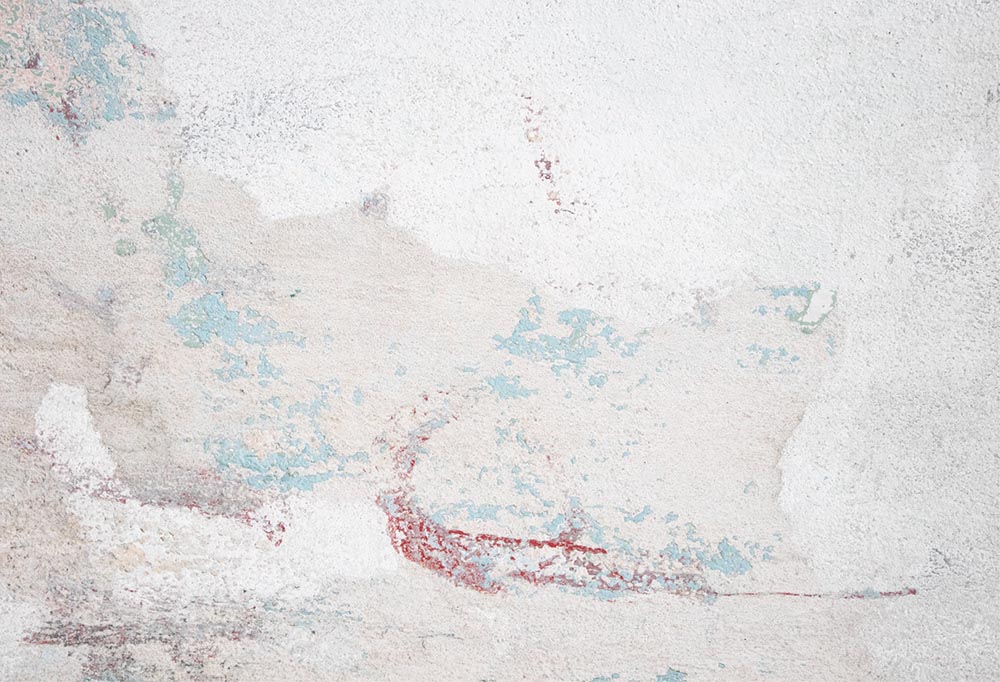What a sad evening this is. Gunshots have been blasting since sundown. The fighters are bidding Beirut farewell. Each his own way, but all using bullets. Hundreds of them aimlessly roam the streets. They’ve put on their new uniforms in preparation for departure. They fire their guns with no targets. In protest, in anger, in sorrow—and perhaps so their ammunition won’t fall into the hands of the enemy.
Sunday, August 22
Day Two of the New Palestinian Migration
Lunch at my friend’s, the painter. He had been immersed in his watercolors of natural landscapes when the war overtook him. His colors darkened, he who had mastered the use of light. His lines splintered. His mythical, bright-feathered bird came to resemble a crow, turned helplessly on its back.
Opposite his studio is an apartment where a family of immigrants resides. (Lebanese or Palestinian? Who can tell the difference? From the South, from the Beqaa, who knows? And what does it matter?) A mother no older than eighteen in a yellow dress, playing with her child: the calm beauty, the confidence emanating from the face, the proud, graceful stance and the round, bountiful belly.
War bestows more beauty upon our women.
In our south, a woman calls her husband ya sakany—my home, where I find tranquility. I call for the reversal of this tradition. In the country of those deprived of their land or deprived on their land, in the country of the migrating and the displaced, woman is home, is tranquility. Woman is the homeland.
From the studio of my painter friend to the hotel of my other friend, the poet.
“What did you do yesterday?”
He answers: “Nothing. I stayed in my room and wept.”
He doesn’t want to leave with the fighters.
“I’m a poet. I’m not a fighter.”
And he asks: “And you? What are you going to do? Will you leave as well?”
“Why would I leave? This is my country, I’m staying.”
“Will you go underground?”
“Probably. For weeks that’s what we’ve been preparing for.”
And among a circle of other friends: Who is leaving, and when? And who will stay?
One question dominates: What if he wins tomorrow’s election?
Monday, August 23
Day Three of the New Palestinian Migration
An hour at the Arab League headquarters to bid the fighters farewell. You can’t tell whether it’s a wedding celebration or a funeral. Circles of dabke dancers merge with circles of wailing women, lamenting their fortune. Faces upon which expressions of joy and sorrow take turns. And on this khaki green gathering—adorned with Palestinian and Lebanese flags and pictures of Abu Ammar and Georges Habach and Kamal Jumblatt and Marx and Engels—grains of rice and perfumed roses pour, as do empty bullet casings flying out of myriad weapons.
And the trucks start exiting through the gate of the Municipal Stadium, sluggishly making their way through the thick crowd. They are stalled by the deluge of people—with their waving, grasping hands and embracing arms—before it heaves them out, one by one. And with every truck that untangles itself from the crowd, chants and shouts rise in the air, and the great blast of antiaircraft guns leaping off the ground with every charge, like steel creatures of legend spitting flames.
And, ever so slowly, the departing fighters peel away from the grasping, waving hands and from the embracing arms. Like skin peeling off its own flesh. They peel away from the farewells. From the prayers. From the promises. From the pledges. They peel away from the kisses. From this grand rubble. From children and wives and lovers and mothers, they peel away. And they peel our hearts off with them.
And a strange feeling consumes you. And the gunshots conduct the beating of your heart in a magical rhythm. And a singular mixture of rage and ecstasy—sadness and fulfillment, grief and pride—possesses you. And Abu ( . . . ) tightens his tense grip on your palm, and you tighten yours on his, to keep the tears from shedding. You shake hands with some, you salute some, you hug some. You raise victory signs. And when they don’t suffice, you wave an angry, determined fist.
The departing fighters peel away from this crowd and leave. They never had a homeland. Here, they built themselves a likeness. (And they did not take root, nor did they possess it, but it was made to resemble one . . .) and here they go now. Carrying their homeland along: In the tears of the women. In the eyes of the children. In bundles and suitcases and saddlebags. In their khaki uniforms. In their wounds and their scars. In their pockets. In rifles and keffiyehs.
The departing fighters carry their homeland and leave. They fold this temporary home, the way one folds a tent. Beirut had been their “only tent,” now it has become their final one.
But it remains their “star.”
The departing fighters bid Beirut farewell. Their signs read: “A kiss for Beirut!” And Beirut sees them off with equal anguish, and love. Her signs read: “Name your children after me.”
The departing fighters carry their homeland on their backs and leave. Deprived of a homeland, they’ve inhabited courage instead.
And courage will remain their homeland, until they find one.

